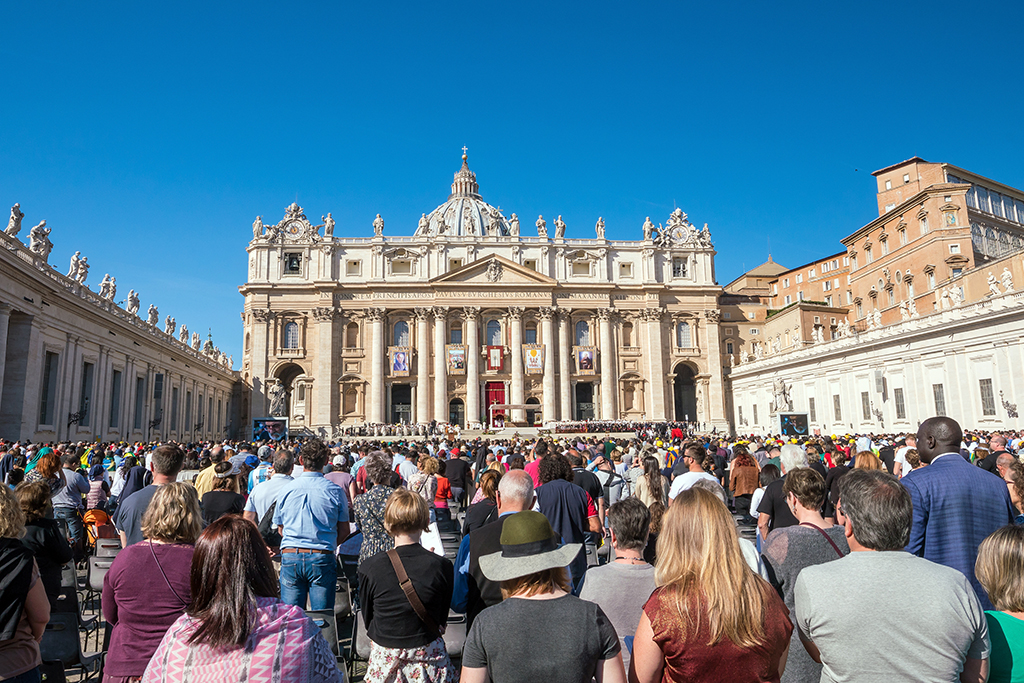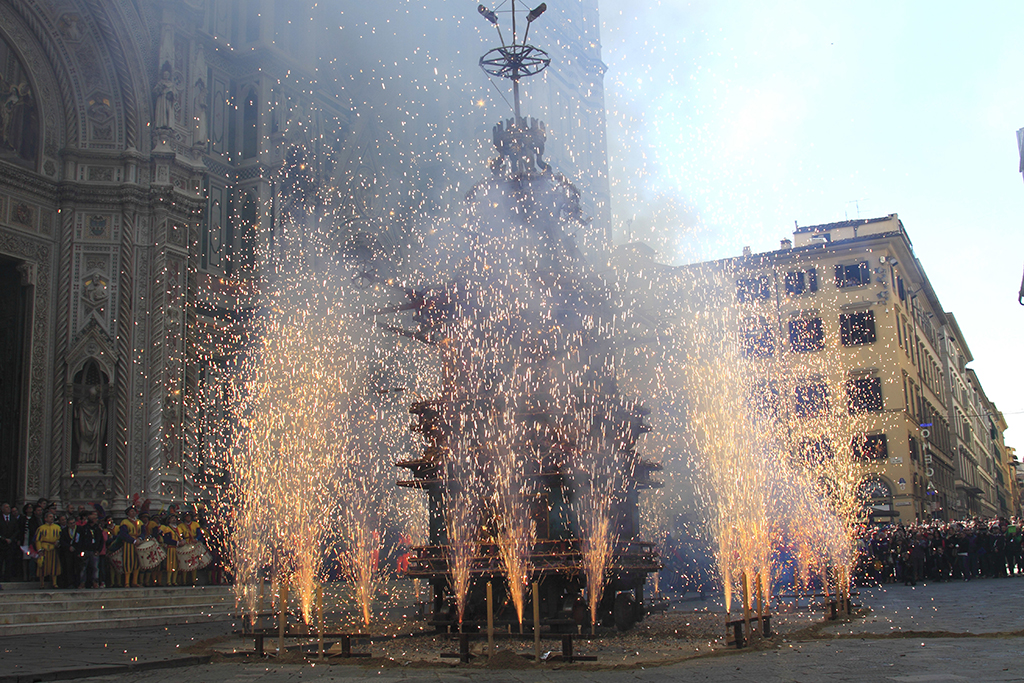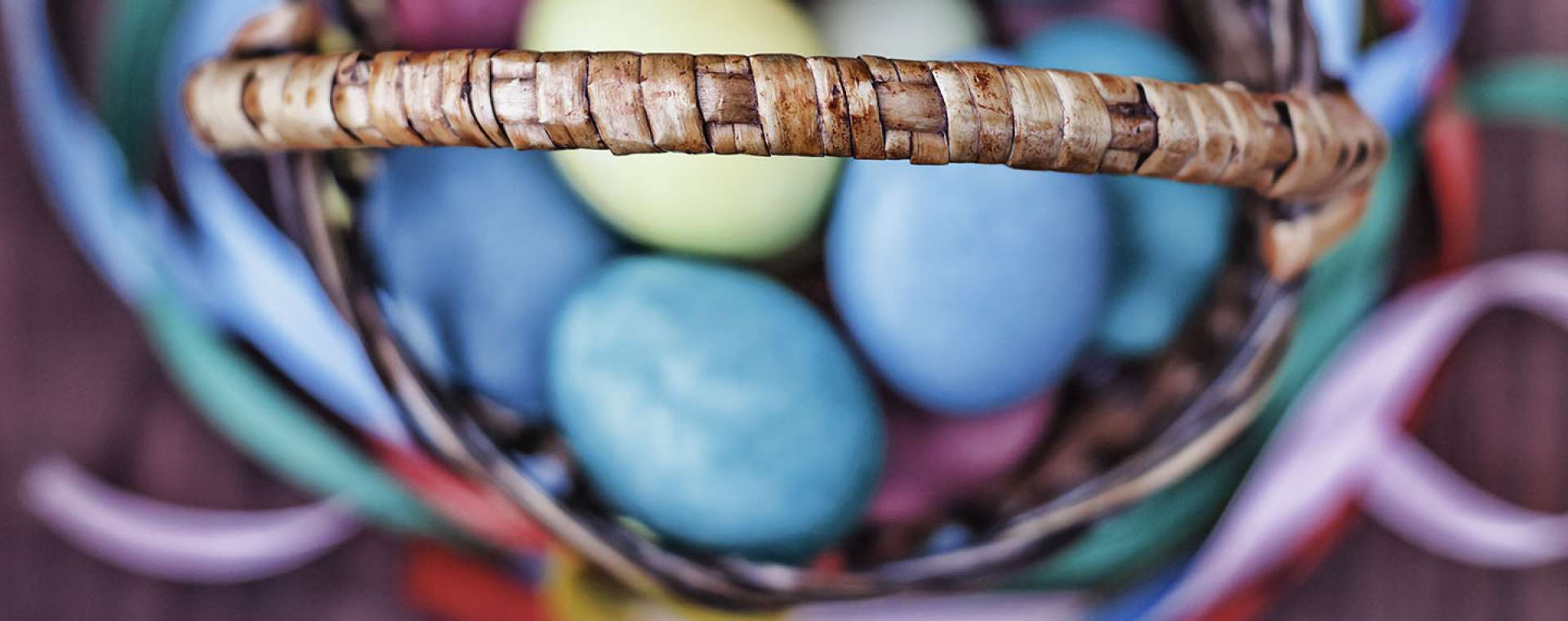Easter in Italy partly resembles the chocolate-filled holiday you experience at home. But while we turn our attention to the Easter Bunny, Italian Easter traditions focus on Jesus and the Virgin Mary. Pasqua is a time for Christian festivities, above all in Rome and the Vatican.
On Good Friday it is traditional to celebrate the Stations of Cross — 14 carvings which commemorate Jesus Christ’s last day on Earth as a man. Starting from the Colosseum in Rome, the Pope leads a torchlit procession with a burning Cross past the 14 stations. He says a prayer at each.
Easter Sunday is the Vatican’s principal Easter Mass. The Pope presides over the biggest public service in St. Peter’s Square.
 St. Peter’s Square
St. Peter’s Square
Scoppio del Carro: Easter Sunday
Florence’s Scoppio del Carro — the Explosion of the Cart — dates to the 15th century, and is a unique Italian Easter tradition.
On Easter morning, 150 white oxen pull a 30-ft. antique cart, filled with fireworks, to Piazza del Duomo. Behind follow soldiers, musicians and ordinary Florentines in medieval costume. A wire connects the cart to a mechanical dove on the cathedral’s high altar.
At the end of Easter Mass, during the singing of Gloria, the Archbishop of Florence lights the dove. It flies down the wire, collides with the cart, and sets off a firework display.
If you are staying in one of our villas near Florence, the Explosion of the Cart is one of the not-to-be-missed Easter events in Italy. Tradition states that if the show proceeds smoothly, Florence will be blessed with a good harvest.

Scoppio del Carro - Firenze
Sagra del Carciofo: various
Ladispoli, 35 km from Rome, hosts one of Italy’s best known artichoke festivals. This is the home of the Romanesco — a purple-tinted artichoke — and the town festival is all about this spectacular edible plant.
You can attend classes to learn to prepare and cook artichokes, or just savour its hearty, herbal taste at stalls and restaurants around the centre.
Rome’s Birthday: April 21
As Easter disappears in the rear-view mirror, Rome celebrates its founding — supposedly by Romulus in 753 BC.
Tradition dictates museums, archaeological sites and monuments are open to the public for free. There’s music, food, wine and dancing across the city, notably in Piazza del Campidoglio. Fireworks over the River Tiber round off Rome’s birthday celebrations.
Sagra del Ciambellino: various
Sinalunga, south-east of Siena, hosts one of Italy’s sweetest festivals. This “Festival of the Little Donut” celebrates a local treat, known here as a Ciambella.
This mini-donut is typical of the Val di Chiana Senese, and so delicate it is also enjoyed soaked in Vin Santo (sweet wine), coffee or cappuccino.
St. Mark’s Festival: April 25
April 25th is a public holiday in Italy, to mark the fall of the 20th-century Fascist regime.
For Venetians there’s an additional reason to celebrate. This is the feast day of St. Mark, San Marco — their patron (also the patron saint of notaries). Tradition follows that on this day, you gift a loved-one a rose.
All kinds of celebrations are held in the centre; market stalls sell local handicrafts, and plenty of food and wine is consumed around Venice’s main squares.
